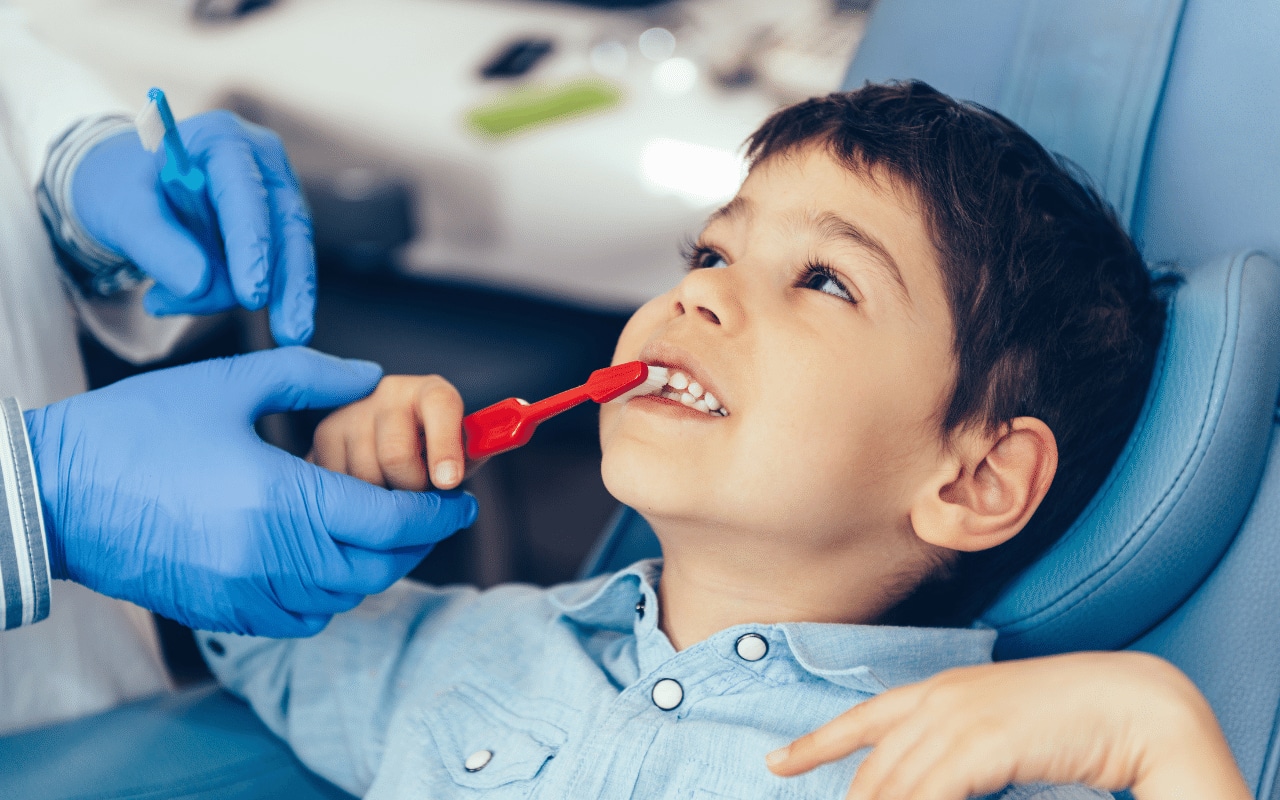Top Signs That You’re Grinding Your Teeth At Night
Do you ever clench your jaw when you’re stressed? If that’s the case, this is a natural reaction. Many people, however, do this on a regular basis, even while sleeping, leading to bruxism or teeth grinding. Tooth grinding harms the teeth, produces persistent discomfort, and interferes with sleep. In this article, Dr. Kim, your dentist in Lexington, KY, shares signs that you’re grinding your teeth and what you can do to stop it.
Three Signs You Have Bruxism or Grind Your Teeth At Night
These are the three most typical indications that you grind your teeth. If you have any questions, please contact Park Hills Family Dentistry in Lexington, KY.
Teeth Look Worn Down
Are your back teeth looking worn down? Each tooth should have some ridges. Flat or worn teeth are one of the most common symptoms that you grind your teeth at night. Dr. Kim says that this can cause some serious problems. Cracked teeth, fractured teeth, chipped teeth, lost fillings, and other unexplained tooth damage are also red flags. Please contact your dentist if you see this type of damage. Your dentist may provide you with a custom mouth guard to prevent any further damage. Without treatment, you can cause gum problems, tooth decay, and tooth sensitivity.
Headaches & Facial Pain
Another indicator of teeth grinding is waking up with headaches, jaw pain, or weary facial muscles. People are frequently concerned by these symptoms; after all, you would expect to wake up feeling rejuvenated after a good night’s sleep. Most people, however, are unaware that this is a common symptom of chronic nighttime tooth grinding. If you have encountered these symptoms, please visit our dental office in Lexington, KY, to see how they can help.
People who grind their teeth occasionally develop pain in the jaw or surrounding muscles. This can result in temporomandibular dysfunction (TMJ/TMD). TMD is a condition characterized by improper jaw movement. When you bite down or chew, you may hear a clicking or popping sound if you have TMD.
Sleep Deprivation
Bruxism, or tooth grinding, also causes sleep disruption for both you and your sleeping partner. When a person discovers that they grind their teeth, it is usually because their spouse or partner complains about the grinding noise they hear at night.
Other times, people become aware of chronic bruxism when they wake up exhausted and fatigued. In rare situations, their face may appear fatigued, or they may experience a headache. Because sleep is so essential to living a healthy lifestyle, it is critical to treat any issue that hinders you from receiving a decent night’s sleep.
Grinding is frequently a symptom of an airway issue. This can manifest as mouth breathing, snoring, or sleep apnea, says our friend Dr. Chris Green, a dentist in Parker, CO. Dentists are frequently the first doctors to identify a suspected airway problem since they may see the indicators on the patient’s teeth before additional symptoms appear.
Why Do People Grind Their Teeth?
There are numerous reasons for bruxism, often known as tooth grinding. Unresolved or prolonged stress or tension is a common cause. Remember how we asked if you ever clench your teeth when you’re stressed? This is a very common reaction to daily stress. Many people find that exercising stress management and relaxation strategies improves their sleep and alleviate bruxism.
Bruxism can also be caused by misaligned, missing, or crooked teeth. The treatment of bruxism caused by dental alignment difficulties necessitates the services of a dentist or orthodontist. If you have crooked or irregularly spaced teeth and several of the top three bruxism symptoms, now is a good time to pursue orthodontic treatment or Invisalign to address these concerns. In addition to a more confident smile, you may sleep better and have less pain.
Some drugs might cause or worsen bruxism. For example, selective serotonin reuptake inhibitors (SSRI) such as Prozac and ADHD drugs such as Adderall have been linked to tooth grinding in some patients. Please inform your dentist aware of any over-the-counter or prescription medications you are currently using when you visit them.
How to Stop Teeth Grinding
Whatever the source of your bruxism, a dental checkup and consultation are the first step toward a solution. There are a few solutions that Dr. Kim may recommend:
Contact Dentist Lexington KY
Teeth grinding can cause serious damage to your teeth. We recommend that you seek professional dental care from the best dentist in Lexington, KY. Please do not hesitate to contact Park Hills Family Dentistry to schedule your next appointment!










